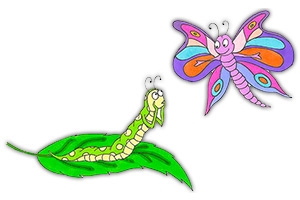How to Overcome Victim Mentality
Change your psychology and stop feeling powerless
 "Being a victim may just be a habit" courtesy of joeshlabotnik
"Being a victim may just be a habit" courtesy of joeshlabotnik"Definition of a victim: a person to whom life happens." ~ Peter McWilliams
Never dismiss stories as just for children:
Once there existed in a lush forest a community of animals who had become victims to the vicious whims of a tyrannical lion. They lived in terror, never knowing upon whom the lion would next pounce. They weren't complete victims, however, and so decided to take some action. They proposed to the lion that each meal time, rather than waiting with unbearable uncertainty, not knowing who'd be devoured next, the animals themselves would select his meal.
Each animal would draw a straw and the one who picked the shortest would present him or herself at the lion's cave as his next meal, be it for breakfast, lunch, or dinner. This made the animals feel more in control, and the lion was happy because his meals would henceforth be home-delivered. But the animals were still victims.
A young fox came to live within the community and, seeing the low morale of the other animals, asked what was wrong. They explained how the lion preyed upon them and also how they themselves selected who was to be the next meal.
"When is his next meal time?"
"He has lunch in half an hour; we're about to draw straws!"
"Not necessary!" said the fox with a glint in his eye. "I volunteer!"
Needless to say, the animals were astonished, thinking the fox quite mad as they gave him directions to the lion's lair. But the fox dawdled and delayed so that by the time he'd arrived for lunch, the lion was both hungry and angry.
"Are you my lunch?"
"I sure am!" replied the fox cheerfully.
"Then why in the name of all things feline are you so late?"
"Yes, sorry for that. You see, it was the other lion, the really strong, ferocious one. He kept trying to insist that I be his lunch instead of yours, but I kept telling him that I was scheduled to be your victim, not his! Anyway, let's get on with it; I'm sure you are a busy lion."
But now anger had vanquished hunger. "Not so fast! Take me to this other lion!"
So the fox led the lion back through the forest, past the other astonished animals, up into a quarry, toward a round, deep well.
"The other lion has made his home down there, if you must know," said the fox. "But let's just forget about him; why don't you just eat me?"
But the lion wasn't hearing this. He prowled up to the well and peered into it. Of course, he saw 'another' lion angrily staring up at him. In an instant, he attacked his own reflection, casting his body down into the deep well.
And that is how the fox saved the community of animals from the big bad lion.
Overcome victim mentality even if you're a victim on the outside
We can all feel like victims sometimes. The term 'learned helplessness' was coined in the 1970s (1) to describe a common feature of clinical depression. People can learn to be passive and feel powerless in a situation where perhaps there was little they could do, but then over-apply this learning to situations in which, if they did but try, they really would be able to influence things.
An analogy for this would be if a wild bird were caged and really unable to fly free. And one day the cage door is left wide open, but the bird, because of past 'learned helplessness', still doesn't escape when, in reality, it could. People often do this in their own ways.
What is a victim?
I think a real victim is someone who feels like a victim. What is done to you and how you respond to what is done to you are two different things. When we talk about victim mentality, we are talking about a feeling and the thoughts that go with the feeling.
When we are without hope, feeling defeated and unable to exercise free will, then we have a victim mentality. Anxiety, fear, and lack of self-belief all contrive to make us feel like victims until we take the reins of our feelings.
If someone feels temporarily defeated, they are not subject to victim mentality, because they feel as if things will change in the future; they will get on top of things again. Let's look at how some real victims refused to give in totally to a victim mindset.
Saying no to victim mentality
People under the greatest of stresses can still maintain some sense of control on the inside even if externally they seem to be 'victims'. Survivors of state-sponsored torture in South America (2) were found to be less likely to suffer persistent symptoms of post-traumatic stress disorder or depression if they later reported that during their time of incarceration, they had still maintained a sense of personal control. How had they done this under torture?
Some of them reported 'setting rules' in their own minds; for instance, only screaming after having counted to a certain number, or eating food in a certain order of their own choosing. They were still doing some things on their own terms. Remember how the fox in the story takes a look at a situation that seems so unchangeable and decides to do things his own way.
How not to have victim mentality
Even the best of us can feel defeated sometimes. If you ever feel like a passive victim, try the following:
- Think about how you may have 'learned helplessness'. Did your past learning teach you passivity? Is the 'cage door' really still closed? Remember that learned helplessness is an illusion.
- Be proactive. There is always something you can do, even if it's an inward change. Remember the torture victims in the study I mentioned.
- Make a plan. Decide to do something, even if the plan doesn't seem directly related to your situation. Determine to eat better, relax more, exercise, or be more assertive. Making a plan - whatever it is - instantly diminishes a sense of being a victim.
When you are proactive and put plans into action, you may find you don't always have to wait for the 'cage door' to open. You may just find you can force it open yourself.
References
- By Martin Seligman, Ph.D., who also found that dogs and rats could be 'taught' helplessness and then over-apply it to situations in which they were not, in fact, helpless.
- See: R. Ramsay, C. Gorst-Unsworth, and S. Turner. The Royal College of Psychiatrists: Psychiatric morbidity in survivors of organized state violence including torture, a retrospective series. Out-Patient Department of Psychological Medicine, University College Hospital, London. Reported in The British Journal of Psychiatry, 162: 55-59 (1993).






